Masks and tears: Mourners mark Ashura in Iraq's Karbala despite virus
Typically, millions of Shia Muslims from around the world flock to the golden-domed shrine of Hazrat Imam Hussain (RA)
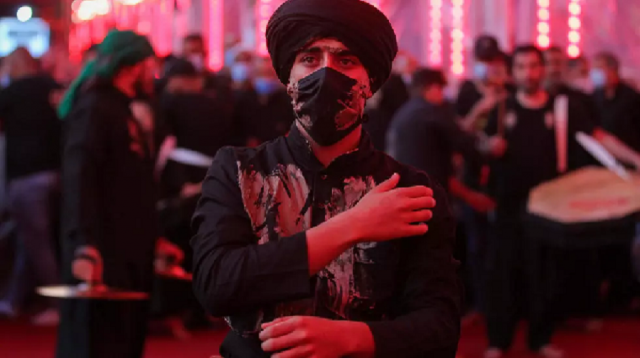
Thousands of tearful Shia pilgrims wearing gloves and face masks flooded Iraq's holy city of Karbala on Sunday to mark Ashura, one of the largest Muslim gatherings since the Covid-19 pandemic started.
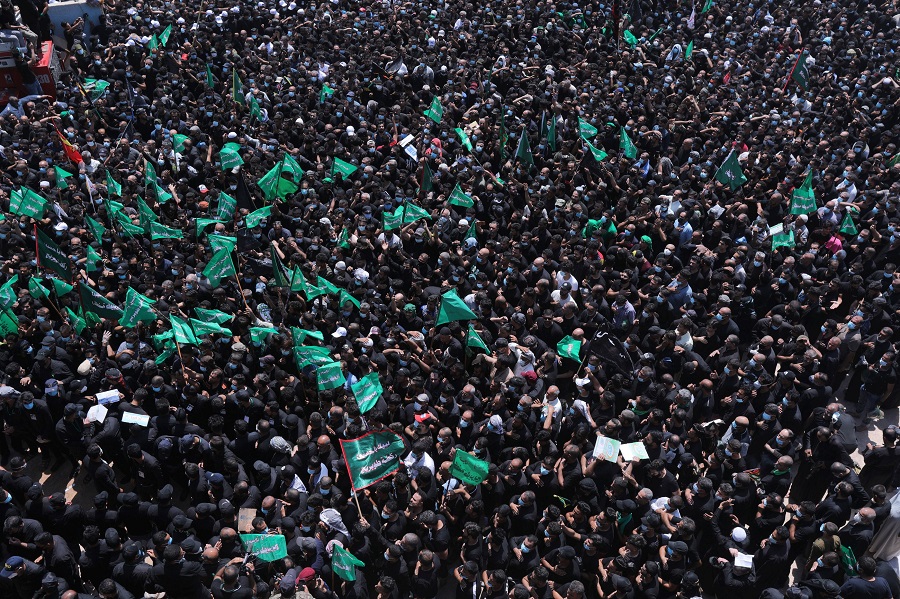
Ashura, the 10th day of the mourning month of Muharram mark the sacrifices rendered by Hazrat Imam Hussain (RA) and his companions at the Battle of Karbala in 680 AD.
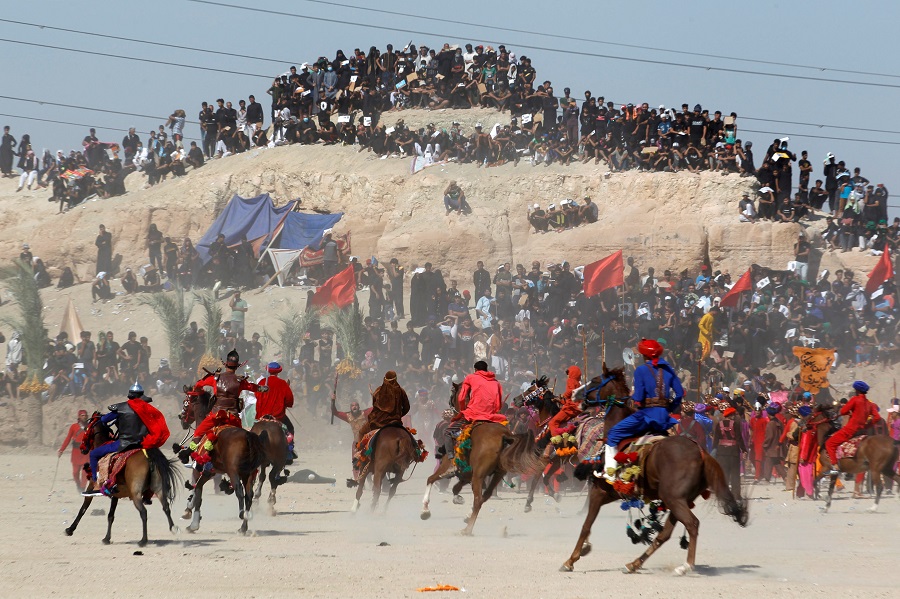 Iraqi Shia Muslims ride horses as they re-enact a scene from the 7th century battle of Karbala to commemorate Ashura. PHOTO: REUTERS
Iraqi Shia Muslims ride horses as they re-enact a scene from the 7th century battle of Karbala to commemorate Ashura. PHOTO: REUTERS
Typically, millions of Shia Muslims from around the world flock to the golden-domed shrine of Hazrat Imam Hussain (RA), to pray and cry, shoulder-to-shoulder.
But with coronavirus numbers spiking across the globe, this year's commemoration is subdued.
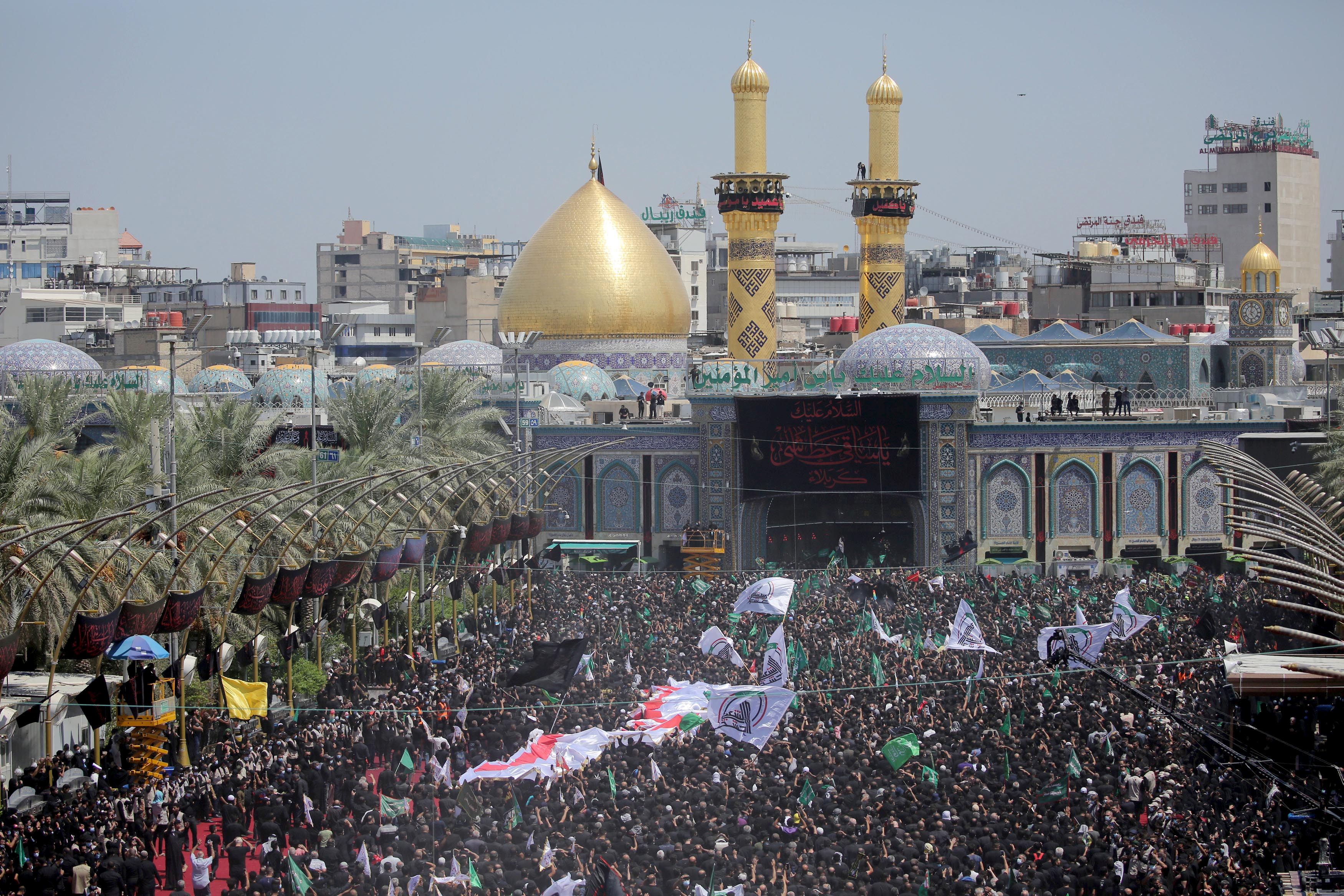
Small clusters of pilgrims gathered in the vast courtyards outside the main mosque, wearing the customary mourning colour of black and the new addition of medical masks and gloves.
Wading through the crowds were teams of shrine employees spraying disinfectant mist through long, thin hoses or distributing masks to any bare-faced visitor.
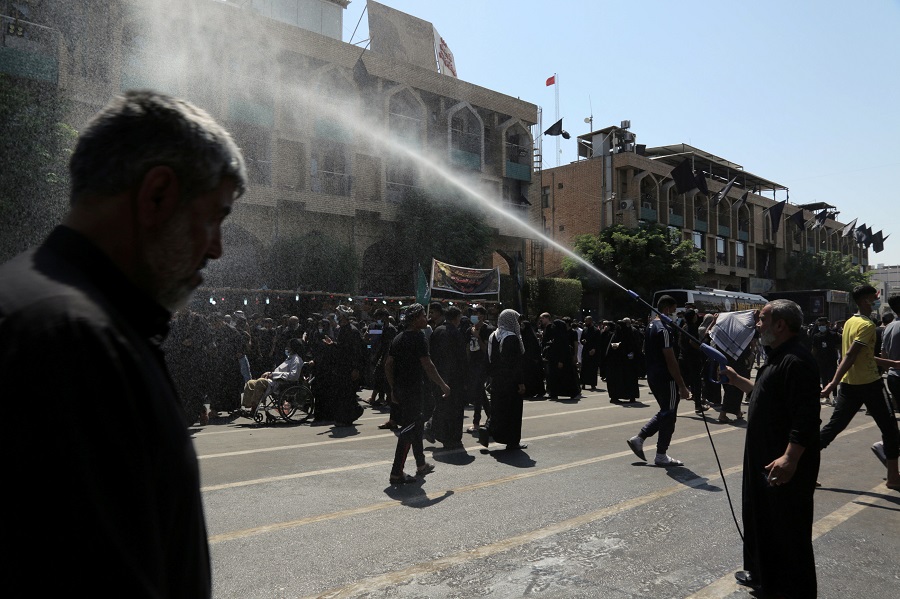
To be allowed into the shrine, people must first have their temperatures taken at grey gates that resemble metal detectors.
Inside, signs on the carpet floor indicate the proper distance that should be kept between worshippers as they pray.
Huge rolls of nylon sheets prevent people from kissing the walls, a habitual sign of reverence.
Praying alone
But in the enclave, pilgrims press their unmasked faces up against the ornate grille separating them from the mausoleum.
Many visitors are crying or sniffling, wiping their faces with bare hands -- oblivious that this is one way in which they could make the virus spread.
There were notably fewer pilgrims this year as authorities in Iraq, other Shia-majority countries and the United Nations urged people to mark the holiday at home.
Neighbouring Iran, which usually sends tens of thousands of pilgrims to Karbala, is the hardest-hit Middle Eastern country with over 21,000 coronavirus deaths.
Tehran banned the usual Ashura marches, indoor ceremonies and other Muharram gatherings broadcasting the various religious rituals on state television.
Even Iran's supreme leader, Ayatollah Ali Khamenei, prayed alone, according to images published by his office that showed him wearing a mask in the vast, empty mosque at his residence.
In Afghanistan and Pakistan, health authorities have reported a fall in new virus cases but security remained a top concern, as Ashura has often been tainted by mass violence targeting Shia Muslims.
Many have opted for scaled-down family gatherings but some processions leading up to Ashura saw thousands turn out, and larger crowds are expected on Sunday.
"It's not possible that anyone would be infected with the virus," said Israr Hussain Shah, a Shia devotee in the Pakistani capital Islamabad.
"Rather people come to heal and protect themselves, whether that's a virus of faith or a sickness," he said.
'An inferno'
In crisis-hit Lebanon, which has seen a severe coronavirus spike this month, powerful Shia movements Hezbollah and Amal scrapped large Ashura processions.
They asked the faithful to follow sermons online and through Hezbollah-linked media channels.
Iraq has the second-highest regional toll with close to 7,000 deaths.
Last week, the World Health Organisation warned that Covid-19 cases in Iraq were rising at an "alarming rate" and said Iraq should take action to end the community outbreak "at all costs".
"Mass assemblies of people should not take place at this stage," the WHO said.
All of Iraq's provinces had seen a steady spike in cases, with Karbala logging a record-high 336 cases on August 21, the day that Muharram began.


















COMMENTS
Comments are moderated and generally will be posted if they are on-topic and not abusive.
For more information, please see our Comments FAQ